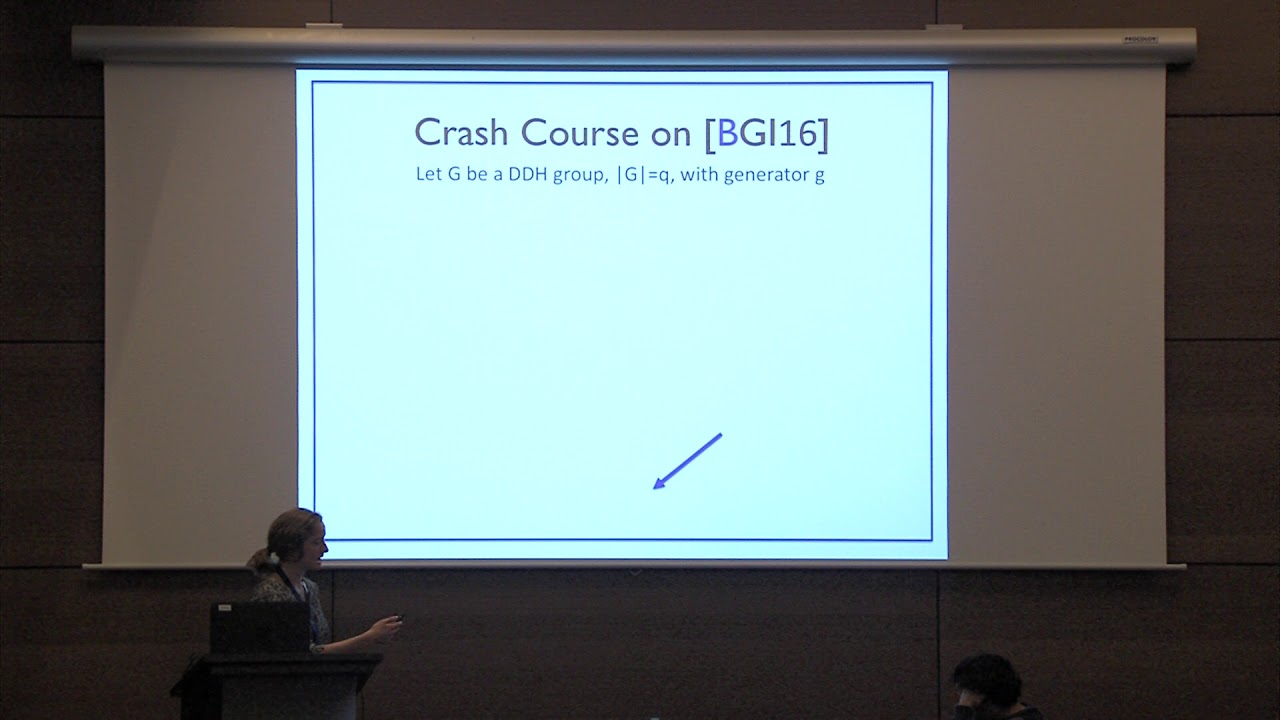Welcome to the resource topic for 2017/150
Title:
Group-Based Secure Computation: Optimizing Rounds, Communication, and Computation
Authors: Elette Boyle, Niv Gilboa, Yuval Ishai
Abstract:A recent work of Boyle et al. (Crypto 2016) suggests that ``group-based’’ cryptographic protocols, namely ones that only rely on a cryptographically hard (Abelian) group, can be surprisingly powerful. In particular, they present succinct two-party protocols for securely computing branching programs and NC1 circuits under the DDH assumption, providing the first alternative to fully homomorphic encryption. In this work we further explore the power of group-based secure computation protocols, improving both their asymptotic and concrete efficiency. We obtain the following results. - Black-box use of group. We modify the succinct protocols of Boyle et al. so that they only make a black-box use of the underlying group, eliminating an expensive non-black-box setup phase. - Round complexity. For any constant number of parties, we obtain 2-round MPC protocols based on a PKI setup under the DDH assumption. Prior to our work, such protocols were only known using fully homomorphic encryption or indistinguishability obfuscation. - Communication complexity. Under DDH, we present a secure 2-party protocol for any NC1 or log-space computation with n input bits and m output bits using n+(1+o(1)) m+\poly(\lambda) bits of communication, where \lambda is a security parameter. In particular, our protocol can generate n instances of bit-oblivious-transfer using (4+o(1))\cdot n bits of communication. This gives the first constant-rate OT protocol under DDH. - Computation complexity. We present several techniques for improving the computational cost of the share conversion procedure of Boyle et al., improving the concrete efficiency of group-based protocols by several orders of magnitude.
ePrint: https://eprint.iacr.org/2017/150
Talk: https://www.youtube.com/watch?v=IX_j3aNTyyM
See all topics related to this paper.
Feel free to post resources that are related to this paper below.
Example resources include: implementations, explanation materials, talks, slides, links to previous discussions on other websites.
For more information, see the rules for Resource Topics .
